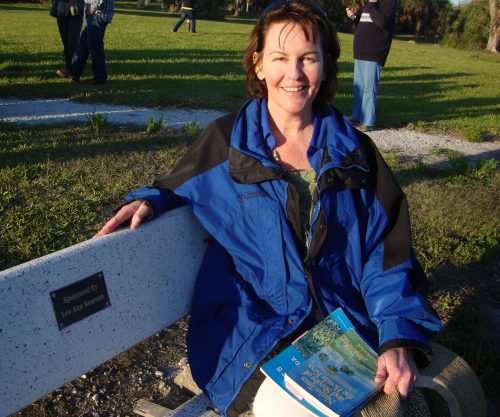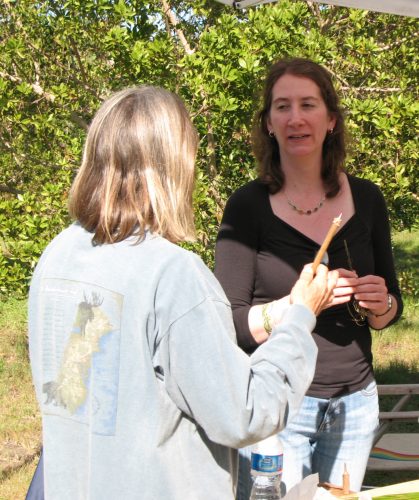As today’s climate fluctuates, sea levels rise dramatically, and severe weather events occur more frequently, sustainability of plant communities is a prominent concern not just of scientists but of everyone. People have adjusted to climate changes in the past. Why have some of these adjustments been more resilient and sustainable than others?

Archaeologists can offer insights on sustainability because our studies provide information over many centuries. In some cases, archaeological data allow us to track the development of human societies from small-scale groups to socially and politically complex societies. Inherent to this transition is reliance on and the sustainability of natural resources, including the development of food storage methods.
In 2014, Lee Newsom, Karen Walker, and Bill Marquardt teamed up to submit a collaborative funding proposal to the National Science Foundation (NSF), and in June, 2015 they were informed that the grant has been approved. Lee’s archaeobotanical work at Pineland and other Southwest Florida sites is known to RRC members because of her co-authored chapters in The Archaeology of Pineland book. Recently, Marty Kendall summarized and illustrated Lee’s and Margaret Scarry’s findings in her book The Plant World of the Calusa, the first issue in our RRC Popular Series.
The new research will focus on the role of fuelwood in the preservation of surplus food in an emerging storage economy, e.g., in the drying or smoking of fish or shellfish. We will also examine the influence of the Calusa people on local forests. Mangrove forests are endangered worldwide, and our investigation will further inform ecologists about their resilience at the edge of their range. Modern management and conservation of coastal forests can benefit from the long-term record, as policy makers consider further habitat disruption and loss from coastal development, sea level rise, and global climate change.

Specifically, the research team will test the hypothesis that the development of a food storage economy was a critical factor underlying Calusa cultural complexity, and that fuel- woods from coastal mangrove forests were an indispensable and sustainable natural resource inherent to this process. Lee’s Ph.D. student Jennifer Haney will undertake intensive wood-anatomical analysis of charcoal excavated from archaeological sites in the Calusa core area along the southwest coast, especially Pineland, emphasizing the characteristics of the fuel supply, the influence of environmental fluctuations on the availability of wood, and human effects on local forests. Drawing on her extensive knowledge of Pineland’s excavated deposits, Karen Walker will select samples in good context for Lee and Jen to analyze. Basic wood data collection will include taxonomic assignments, observations on anatomical variation, age, growth form, and growth rate. The research will incorporate modern forest ecological data and experimental methods to establish the hypothetical limitations of the fuel supply. The information they produce will help study the effects of sustained fuelwood selection and use, the impact of natural disruptions to the fuel supply, and the potential for management of our forests today.
This article was taken from the Friends of the Randell Research Center Newsletter Vol 14, No. 3. September 2015.